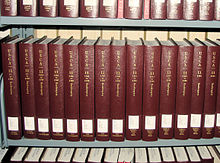Laws are written vaguely and this is necessary to limit the total number of laws.
Lawyers depend on caselaw, which is sometimes contradictory, to decide the literal meaning of a law for the case in front of them at the moment.
Bad laws occasionally get repealed.
The NEC is written very densely and abstractly, in places.
Electricians have to interpret the literal meaning of the rules for the installation in front of them at the moment.
Is there a parallel for caselaw for electricians?
What does it take to get a "bad" rule deleted from the NEC?
Do "good" rules occasionally get deleted from the NEC, by accident or on purpose?
Thanks for whatever comments you can provide me.
Lawyers depend on caselaw, which is sometimes contradictory, to decide the literal meaning of a law for the case in front of them at the moment.
Bad laws occasionally get repealed.
The NEC is written very densely and abstractly, in places.
Electricians have to interpret the literal meaning of the rules for the installation in front of them at the moment.
Is there a parallel for caselaw for electricians?
What does it take to get a "bad" rule deleted from the NEC?
Do "good" rules occasionally get deleted from the NEC, by accident or on purpose?
Thanks for whatever comments you can provide me.
Last edited:



